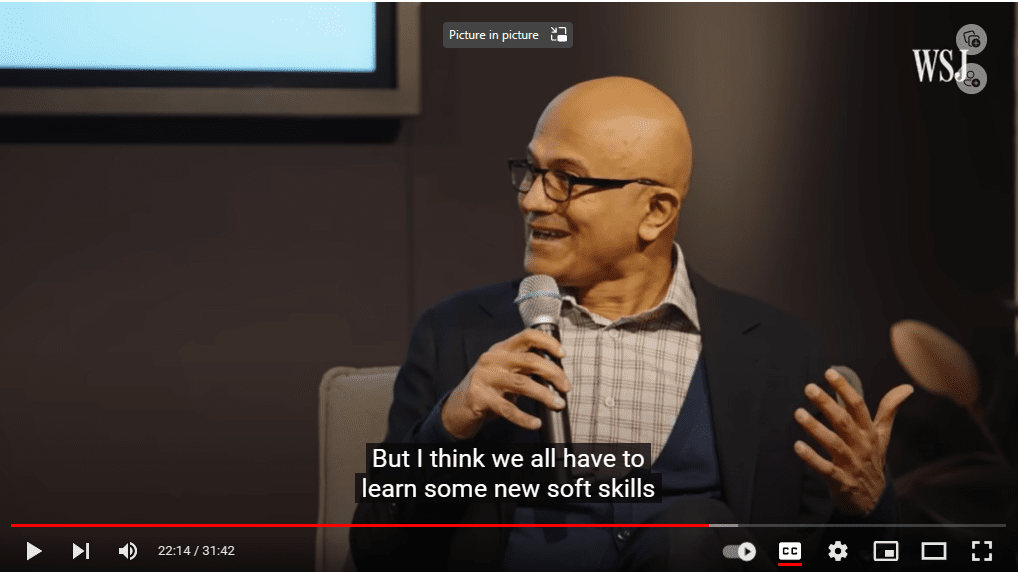Andrew Grant and Dr Gaia Grant take on Chat GPT and BART! Round 1.
“It is unlikely that ChatGPT will replace all aspects of learning and development for corporate companies. While ChatGPT can provide quick and accurate information, it does not have the capability to facilitate hands-on experience or provide personal interactions and feedback. It is best used as a supplement to existing learning and development programs, rather than a replacement.” ChatGPT
The quote above was formulated by Chat GPT in response to the question: “Will ChatGPT replace learning and development for companies?” It’s good to know that according to this AI bot, services like ours will still be relevant! At least for now. But it’s going to be important to consider how these emergent technologies will start to impact the ways we learn to stay a step ahead.
Will it really be a CODE RED disruption, and the end of traditional learning as we know it?
Along with T&D professionals in businesses, educational institutions such as universities and schools are also bracing themselves for the onslaught of this new disruption. It is not clear what the future will hold. Microsoft’s CEO Satya Nadella recently pointed out that we need to embrace new tech, not resist it or be afraid of it. Just like when the PC was invented, and when students started using calculators and saved on complex maths methods once requiring detailed computation with a pen and paper, Nadella points out that new technologies have allowed us to start processes at a deeper level and go further. Nadella is excited that every person (and particularly every child) will soon have their very own personal tutor to help them learn.

See the latest interview with Satya Nadella: Microsoft’s Products Will Soon Access Open AI Tools Like ChatGPT | WSJ | https://youtu.be/UNbyT7wPwk4
Can Chat GPT, LaMDA or BARD replace training and development?
We also believe these AI tools will support learning rather than cannibalising it. There is a higher level of learning through personal facilitation and reflection that requires nuanced emotional connection, and now is the time to identify the strategic roles of each.
Training and facilitating sit in very different buckets, and understanding the difference can assist with identifying how to approach a learning opportunity. As information can be effectively transferred through training, AI bots will no doubt be able to assist with this purpose.
Deeper learning involves leading individuals through a facilitated customised learning process. This involves assisting individuals with learning from experience and coming to their own conclusions about what they need to learn and how they can grow. It requires professionally guided self-discovery. This sort of experience is not something that can be replaced easily. If anything, the skills needed for exceptional facilitators who can develop relational environment needed for this deeper learning will become more highly valued.
The ‘flipped classroom’ as the new starting line
The concept of the ‘flipped classroom’ has helped to define a new approach for working with tech in the learning and development space for some time now. This concept is defined as ‘a pedagogical model in which traditional lecture and homework elements are reversed’ (Adelaide University).
In this model students learn the key easily transferrable information in their own time the info (eg knowledge, models and facts) and come to the shared learning environment (eg school, university classroom) to process the information. They can then further the learning and discuss the implications in a group context. The flipped classroom will be the most efficient model of learning in the future. Technical skills can now be learned independently, while the more ‘soft’ personal and interpersonal skills will still need to be explored and nurtured under the guidance of a capable facilitator.
Designing for deep development
A carefully designed and facilitated program helps the group solve a substantive program and learn to improve processes simultaneously in real time. These programs will ideally be designed to change the ways people feel, think, behave – by fostering a sense of empowerment and by helping to address opposition and denial and deal with negative dysfunctional behaviours where possible.
A good facilitation process for a company will assists leaders and teams with reflecting on and find real solutions to business needs. Facilitators need to be very skilled in managing group dynamics as they will work with the “live” and “fluid” undercurrents. They need to be able to deal with difficult people and win everyone over to support constructive participation in the learning process. Skilled and experienced facilitators will ask the participants for their opinions and refrain from giving judgemental feedback. In this way, participants learn to think for themselves and begin to take ownership of confronting issues. If they “own” their issues, they are more likely to commit to changing the situation and to follow through on their commitments.
In a facilitated debrief discussion, participants are asked to reflect on their experiences and to discuss opportunities for learning. A free form discussion can shift from topic to topic according to the group needs, or the conversation can be channelled in a direction that helps to break negative patterns and reveal new options. This latter style of debriefing is known as ‘funnelling’, as questions are carefully sequenced to lead the group toward an outcome.
How AI can support learning
What the new AI tools can do is help broaden our knowledge base in an effective and efficient manner. There is now no need to now have a trainer stand out the front of a room espousing factual information, unless there is an issue with motivation for self-directed learning. Individuals can ask an AI bot what they want to learn, which supports access to greater knowledge learning faster.
Yet there’ll always be a place for deeper facilitated learning that embraces the human heart and soul and ensures individualised engagement and growth.
Maybe we’ll be proved wrong. It’s over to the AI bots for now!
What do you think? How will your learning be disrupted and will it be for the better? Love to hear your comments.
——————–
What then can we offer?
Go beyond the AI experience and dive deeper for leaders and teams, with our new authentic Innovation Collaborator Canvases. http://collaboratorcanvas.com/


